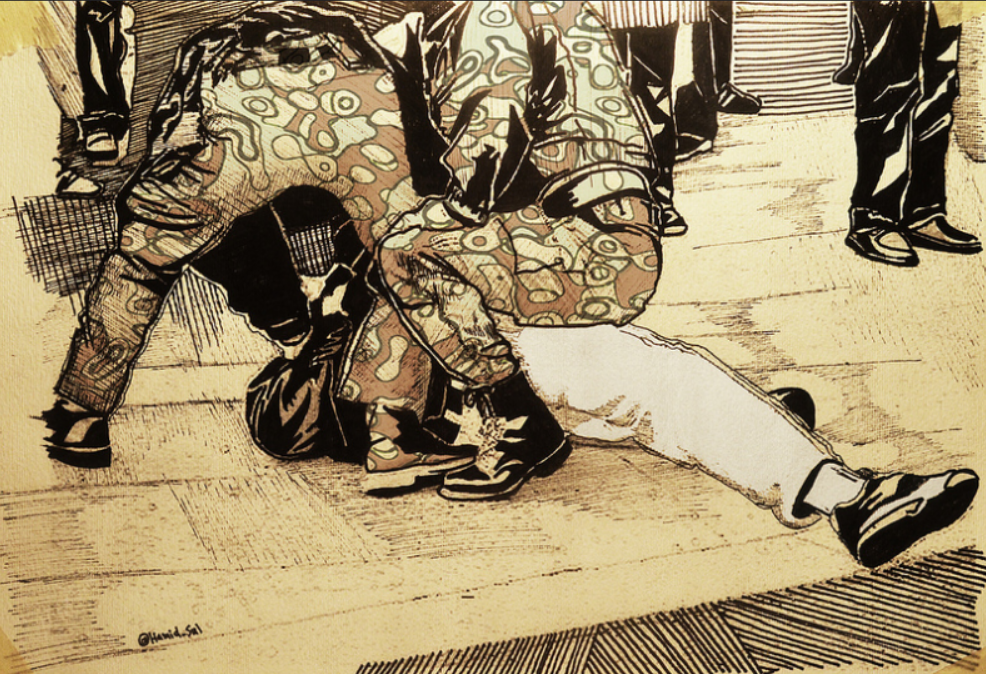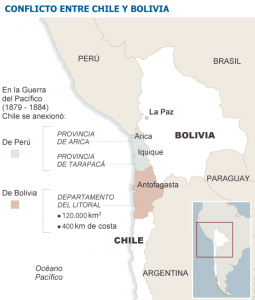ICC: Passing of former ICC Judge Hans-Peter Kaul
IN MEMORIAM: ICC Judge Hans-Peter Kaul
We are deeply saddened to announce that former International Criminal Court (ICC) Judge Hans-Peter Kaul passed away on 21 July 2014 after a period of serious illness, which led him to resign from the Court with effect from 1 July 2014.
“Judge Kaul’s death is an enormous loss for the ICC. He served as a role model, dedicating his career to reshaping international justice. Judge Kaul was a driving force in the creation of the Rome Statute, in the establishment of the ICC, and in many of the decisions rendered in the situations and cases before the Court in its history thus far. We will long remember him with respect and admiration on a personal and professional level, for his relentless commitment and extensive contributions to international justice”, said ICC President Judge Sang-Hyun Song.
The President of the Assembly of States Parties, Ambassador Tiina Intelmann, recalled “the vital contribution which Judge Kaul had made to the establishment of the Rome Statute system, both as head of the German delegation during the negotiations which culminated in the adoption of the Statute, as well as a member of the Court’s bench, where he leaves an important legacy of contributions to the jurisprudence of the Court. Judge Kaul will be remembered for his multi-faceted and unrelenting support to the cause of international criminal justice; he was also indefatigable in advancing the support for the amendments to the Rome Statute on the crime of aggression”.
National of Germany, Judge Kaul served as an ICC Judge for 11 years. In the first elections of ICC judges in February 2003, he was elected by the States Parties to the Rome Statute for a three-year term and assumed his duty on 11 March 2003. He was re-elected in 2006 for a further term of nine years. Judge Kaul was a member of the ICC’s Pre-Trial Division, serving as the Division’s President from 2004 to 2009, as well as from 8 April 2014 until his resignation. He contributed to important decisions in proceedings regarding situations in Uganda, the Democratic Republic of the Congo, Darfur (Sudan), the Central African Republic, Kenya, Libya and Cote d’Ivoire, and the related cases. From 2009 to 2012, he served as the ICC’s Second Vice-President.
Judge Kaul also served for several years on various committees related to the Permanent Premises: he was chairman of the Inter-Organ Committee on the Permanent Premises (2003-2008), the senior representative of the Court in the Jury of the International Architectural Design Competition, and contributed to the work of the Oversight Committee of States Parties, playing an important pioneering role in the process which eventually led to the planning and construction of the ICC’s future permanent home.
Judge Kaul made significant contributions to the development of the ICC and international law even before being elected as an ICC Judge. In 2002, he was appointed Ambassador and Commissioner of the Federal Foreign Office for the International Criminal Court. From 1996 to 2003 he participated as head of the German delegation in the discussions and negotiation process of the Rome Statute of the International Criminal Court. Previous to that, in his capacity as Head of the Public International Law Division of the Federal Foreign Office (1996 – 2002), he was responsible, inter alia, for several cases involving Germany which were before the International Court of Justice. He published extensively on the International Criminal Court and other fields of public international law.
Condolence books will be available at the lobby of the main entrance of the International Criminal Court (Maanweg 174, The Hague, Netherlands) and of the public entrance (Regulusweg, The Hague, Netherlands) from 23 to 25 July 2014. Messages of condolence can also be sent by letter to the President of the Court Judge Sang-Hyun Song and by email to: PublicAffairs.Unit@icc-cpi.int.
Florida Takes Legal Action against Texas Oil Company Illegally Fracking in Fragile Everglades Watershed
By Kathryn Maureen Ryan
Impunity Watch, Managing Editor
WASHINGTON D.C., United States of America – Florida’s Department of Environmental Protection announced last week that it will be taking legal action against the Dan. A. Hughes Company, a Texas based oil company, for violating state drilling regulations at one of its wells located near the Everglades, accusing the company of disregarding the safety of Florida residents and natural resources. Among the issues of concern regarding the illegal drilling operation cited by DEP were concerns over company’s groundwater monitoring and handling of drilling wastewater. The company was extracting natural gas though the controversial practice of injecting high levels of hydrochloric acid into wells known as “acid fracking,” a practice similar to Hydraulic fracturing.

The company is accused of unauthorized drilling in the Big Cypress Swamp whose fresh water resources are essential to the health of the Florida Everglades Watershed and support marine estuaries along Florida’s southwest coast. The Big Cypress watershed is home to a protected National Preserve, serves as a critical fresh water reservoir and supports hundreds of species including the critically endangered Florida panther. The Florida panther is one of the most endangered mammal species in the United States; it is estimated that only 160 individuals remain in the wild.
DEP Secretary Herschel T. Vinyard Jr. announced the lawsuit last week saying the state agency will “file a lawsuit against the Dan A. Hughes Company to address violations at the Collier-Hogan well. After months of holding Dan A. Hughes accountable for unauthorized activities at the Collier-Hogan well site, it is clear that the Company has not taken seriously the Department’s demands to protect Collier County families or Florida’s natural resources.”
This lawsuit will seek force the Hughes Company to shut down its operations at the Collier-Hogan site, until pending completion of appropriate environmental testing and analyses can be completed by the DEP. The company announced last week that it had shot down drilling operations at the disputed site which is located near Florida Panther habitat. According to DEP press secretary Tiffany Cowie says the company’s announcement of a temporary shutdown at the site does not change the agency’s plan to sue.
Residents and environmentalists called on the state to take action against the Hughes Company when it was discovered that the company was practicing acid fracking in the area last year Environmentalists cite concerns that the practice, which requires high volumes of fresh water, may deplete the watershed’s supply of fresh water, putting the ecosystem and residents at risk. The practice also raises concerns over the handling of toxins, including hydrochloric acid, produced for and during the drilling process. Activists and environmentalists argue that until more research is done to understand the long-term effects of such practices on the fragile ecosystems in the region drilling operations should be halted.
Environmentalists also cite convenes that fracking could increase seismic activity in the area. Seismologists say the practice of Hydraulic fracturing may be causing an increase in seismic actively in areas where drilling is allowed. Earlier this month 8 small earthquakes were recorded by the United States Geological Survey in Oklahoma over a span of about 30 hours. Jennifer Hecker, director of natural resources for the Conservancy of Southwest Florida, warned that seismic testing deployed in other regions where fracking is allowed will not be as effective in Florida because of the porous nature of Southwest Florida’s limestone bedrock. Florida’s limestone may also pose a problem for potential drilling operations because of fragility of limestone formations which are prone to erosion and are a contributing factor to the creation of sinkholes in the region
United States Senator Bill Nelson flew in to Southwest Florida Earlier this month to listen to the concerns of his constituents, environmental groups and government officials about oil drilling in Southwest Florida. “We’ve spend billions of dollars to restore the Everglades — that’s taxpayer dollars,” he said. “I want to make sure what goes on does not mess that up.” Nelson said he will bring the concerns of Florida residents back to Washington but argued that he bevies more research must be done to understand the effects of acid and hydrologic fracturing on the environment before federal action can be taken.
For more information please see:
News 13 – DEP Suing Oil Company for Using Fracking-Like Technique near Everglades – 17 July 2014
First Coast News – Oil Company Busted For Fracking In The Everglades – 16 July 2014
CBS News – 8 Small Earthquakes Shake Oklahoma As Fracking Critics Grumble – 14 July 2014
Naples Daily News – Sen. Nelson: Prevent Oil Drilling In Southwest Florida from ‘Messing Up’ Everglades – 14 July 2014
National Parks Service – Big Cypress National Preserve – 2014
The Kidnapped Groom
Syrian Justice and Accountability Centre

The Syria Justice and Accountability Center works to collect and document cases from different sources concerning the arrests and abductions of Syrian citizens. The center is highlighting some of these cases to demonstrate the systematic nature of these actions, to illustrate the center’s work, and to encourage other victims to testify, given the importance of testimony to any future justice and accountability processes in Syria.
These are excerpts from a testimony of a victim of kidnapping, “M.A.” M.A. was born in 1989 and he works as a tailor.
“My fiancé and I agreed to go to Damascus to get married and then return together to northern Syria. I was on my way there when our public bus lost its way Maraba, in the suburbs of Damascus, and entered Harasta. [We approached] government barriers, where government forces fired into the air to stop the bus. Then, the government soldiers pulled us down [from the bus] and stopped us in the street in a manner suggesting that they would shoot us.”
M.A. continues, telling the details of a story he made up to try to get himself out of trouble, which ended up backfiring:
“I was thinking that those who stopped us were gunmen from the opposition, and that there had been some confusion. I started shouting, trying to explain: ‘I have brothers like you in the Free Syrian Army in the Farouk Brigades!’ The soldiers all went crazy hearing this, and led me to a separate room, screaming into their wireless devices, asking to talk with the Air Force Intelligence branch. Then they started beating me with wooden sticks and batons for a long time.”
Regarding the whereabouts of his arrest, M.A. says:
“They took me to the Air Force Intelligence branch, and then I was blindfolded, but I could hear their conversations. They took me inside to a room that did not exceed about one square meter. I was struck by thirst, and began to request water urgently, but no one answered me. When I started knocking the door firmly, asking for water, they tied up my hands and my feet and took me inside a room with a water pipe. I approached it, crawling, but they put an electric wire in the water, which shocked me [when I tried to drink]. Then someone asked me if I wanted more water. I told him I completely abandoned the idea. ”
Regarding the Air Force Intelligence branch investigation, M.A. says:
“The interrogator asks me why I came to Damascus, so I answer, simply, that I am coming for [my] marriage. He returned me to a room no more than an area of about one square meter, shared with three other detainees. After several hours, they escorted me to a torture chamber where they folded me inside a rubber car tire tied to the ceiling. Then they start to beat me with sticks and electric rods. I was screaming for god’s help, so he [the guard] says: this is God’s stick. And he continued to beat me with it.”
This situation continued for more than a month and a half. Then they took me to a room of about nine square meters, shared with 70 other detainees. I was able to ascertain the number [by observing] the number of meals served and the number of people entering the room.”
Torture was almost daily and very routine, beginning around four in the afternoon and continuing until midnight and, in some cases, until the morning. Among the tools used in torture were the “Magic Carpet” and electrocution [while I was] in many positions, [used] on different body parts. ”
M.A. recalls his observations from that period:
“I have seen with my own eyes many of the deaths under torture. Others were dying inside the detention room due to hunger and lack of food.”
On one occasion, a number of armed elements of the [military] branch escorted me and three others out of the room. Our feet were bound together by chains, so none of us could escape on our own. They asked us to dig nearby. As we were digging, human remains appeared. I saw a full hand and I dug and found other human remains.”
We started digging at midnight and stopped at six in the morning. Then made us put our thumbprint on a blank piece of paper, and returned us to the detention room.”
One night it seemed that there was an armed opposition attack on the Air Force Intelligence branch in Harasta. So the branch soldiers put me and the other detainees in front of them, as a human shield. The other party [the opposition] stopped shooting, but the branch soldiers opened fire on us directly, killing six detainees.”
M.A. reports that he was not fully aware of the details of his kidnapping after he left the Air Force Intelligence branch in Harasta. He was transferred to the Mezze prison and remained there for three days without going to any interrogations or being asked any questions. Then he was transferred to the military police and stayed there a week.
Subsequently he went to the Justice Palace:
“In the Justice Palace in Damascus, one of the judges sentenced me, [saying] that I was a terrorist. I had never met this judge [before].”
M.A. was sent to Adra prison and then released three months later. In total, about eleven months passed between his wedding day and his release.
Chilean Government Challenges the Jurisdiction of the ICJ in Bolivian Sea Access Case
By Mridula Tirumalasetti
Impunity Watch Reporter, South America
SANTIAGO, Chile—Chile wants to deny Bolivia access to the Pacific Ocean. Chilean President Michelle Bachelet stated on Monday that the country plans to challenge the jurisdiction that the International Court of Justice (ICJ) in Hague has in the matter. Bachelet stated, “Our national interest is at stake and we will defend it with all the strength, determination, and sobriety that is necessary.”
The territorial dispute between Bolivia and Chile is longstanding and historical. Bolivia filed a lawsuit against Chile in April 2013, in which the country attempted to regain access to the sea. On April 15, 2014, the Bolivian government filed a written statement which gave Chile three months to file an objection to the ICJ jurisdiction in this case.

Bolivia has asked the ICJ to grant it territory that it lost in the War of the Pacific (1879-1883), even though it signed the Treaty of Peace and Friendship with Chile in 1904. The treaty established the two countries’ current borders, but Bolivia argues it was coerced into accepting the agreement. The Bolivian government estimates approximately 400 kilometers of coastline and 129,000 square kilometers of land were lost due to the War of the Pacific. Chile and Bolivia have had tense relations ever since.
However, the Chilean government insists the two countries signed the Treaty of Peace and Friendship, and thus there is nothing more to settle.
In her address on Monday, Bachelet also stated the treaty had “been respected and implemented by both States for over a century, and Chile has granted Bolivia the widest possible right of commercial transit across its territory and ports on the Pacific.” She continued that Chile’s foreign policy was guided by “the unyielding defense of our territorial integrity and our national interests, which coincide with essential principles of international law and relations among states, including the inviolability of treaties and the stability of borders.”
Because Bolivia is a landlocked country, gaining access to ocean ports could help boost their economy. Moreover, it could help end the dispute with Chile and boost economic ties between the two States.
Bachelet’s decision received widespread support in Chile, and the dispute between the two nations has sparked nationalist sentiments. Julio Carrion, who a a political scientist specializing in the Andean region at the University of Delaware argues, “The strong anti-Chilean sentiment in Bolivia makes it risky for any government to formally give up. The best one can hope for is a gradual, silent fading away of the issue, which is unlikely to happen with the current administration.”
For more information, please see:
PanAm Post– Bachelet Rejects The Hague’s Authority in Bolivia’s Sea-Access Case–8 July 2014
El Pais–Chile to contest UN court’s jurisdiction in dispute with Bolivia over sea access–8 July 2014
The Wall Street Journal–Bolivia’s Tack Toward Pacific Faces Chilean Headwind— 8 July 2014
The Santiago Times–Bachelet: Chile will challenge ICJ jurisdiction on Bolivia case–8 July 2014
